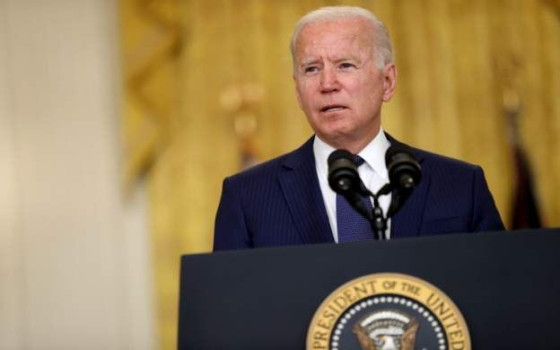
The Biden-Xi Jinping summit aims to "reset" the relationship between the United States and China, and Washington and Seoul discussed achieving common climate goals

- Europe and Arabs
- Monday , 14 November 2022 16:8 PM GMT
US President Joe Biden will stress that the United States does not seek conflict with Beijing during his meeting with Chinese leader Xi Jinping in Bali, but will press Washington's commitment to maintaining peace and stability in the Taiwan Strait, the New York Times reported. To senior officials in the White House.
She said the summit is the first face-to-face meeting of leaders since Biden took office in January 2021. It will take place on the Indonesian island on Monday and comes amid rising tensions over Taiwan, a self-governing democracy that China asserts as its territory, and vowed to "reunify" by force if necessary.
One of the officials said Biden will prioritize the United States on China's "provocative" military actions near Taiwan, adding that the main objective of the summit is to "reduce misunderstandings and misconceptions and put in place steps that we believe will set the rules of the road."
Increased cooperation will not necessarily lead to substantive progress on "thorny issues" such as Taiwan, the official said, explaining that the goal is to "find ways to communicate" in those difficult areas, "because the only thing worse than...having contentious talks is not having talks on the launch".
Earlier on Monday, Biden announced investments in Indonesia following a summit with the country's president, Joko Widodo. Biden described Indonesia as a "critical partner," and also said that the two countries would cooperate to "protect our people" from the coronavirus pandemic.
The investments cover areas such as the climate emergency and food security, and include a $2.5 billion carbon sequestration agreement between ExxonMobil and Indonesia's state-owned company Pertamina.
A White House statement said the partnership "will enable key industry sectors to decarbonize," adding that it will reduce carbon emissions, ensure economic opportunities for Indonesian workers and help Indonesia achieve its carbon-neutral ambitions in 2060 or earlier.
The newspaper pointed out that Biden and Xi, who last discussed by phone in September, are not expected to achieve a diplomatic breakthrough, but will instead attempt to "reset" the relationship between Washington and Beijing.
This comes after US President Joe Biden discussed with his South Korean counterpart Yoon Sok-yeol the role of the two countries' companies to achieve common climate goals, coinciding with the Conference of the Parties to the United Nations Framework Convention on Climate Change "COP27" held in Sharm el-Sheikh.
During his meeting with his South Korean counterpart on the sidelines of ASEAN in Phnom Penh, Cambodia, the US President presented the ambitious US agenda to combat the climate change crisis through historic investments in green technology, facilitated by the law on reducing climate change, according to a press release published by the White House on its website today, Monday. Inflation to fight climate change.
The two presidents discussed the important role that American and South Korean companies will play in achieving common climate goals, in addition to bilateral efforts to provide humanitarian assistance to Ukraine and hold Russia accountable for its military intervention against its neighbor.
Biden welcomed Yun's announcement of South Korea's new strategy in the Indo-Pacific. The two leaders stressed the importance of strengthening cooperation across the region, including with ASEAN partners and Pacific island nations.
They also condemned North Korea's destabilizing actions, including military operations near the border area and the launch of an ICBM.
The leaders discussed their joint efforts to limit Pyongyang's ability to finance and develop illicit weapons of mass destruction and ballistic missile programs.
During the meeting, the US president reiterated the US commitment to expanded deterrence toward South Korea using the full range of US defense capabilities, including nuclear, conventional and missile defense capabilities, and emphasized the US commitment to identifying additional steps to further enhance deterrence in the face of North Korea's nuclear threats.
Source: agencies












No Comments Found